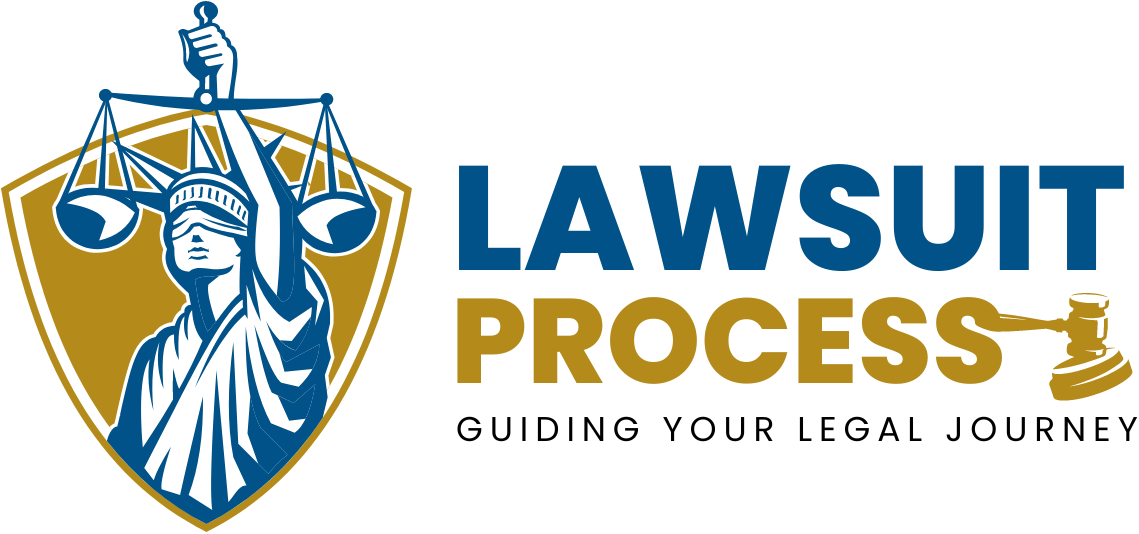Unfair business practices harm consumers, competitors, and sometimes even entire industries. To combat such practices, the U.S. legal system has developed a robust process for individuals or businesses to file lawsuits and seek remedies. Understanding the process for filing an unfair business practices lawsuit can help affected parties navigate the complexities of the legal system and potentially obtain compensation or other relief.
What Constitutes Unfair Business Practices?
Unfair business practices refer to unethical or illegal actions that give a company an unfair advantage in the market. These actions often harm consumers, competitors, or both. Examples of unfair business practices include:
- False Advertising: Misleading consumers about a product or service, including exaggerated claims or concealing crucial details.
- Fraud: Intentional deception to gain a financial or other advantage.
- Price Fixing: Colluding with competitors to fix prices at a certain level, rather than allowing market forces to dictate them.
- Monopolistic Practices: Engaging in conduct that unfairly stifles competition, such as predatory pricing or exclusive dealing arrangements.
- Consumer Exploitation: Unjust treatment of consumers, including charging exorbitant fees or engaging in deceptive trade practices.
These practices are prohibited by various state and federal laws, including the Federal Trade Commission (FTC) Act, Sherman Antitrust Act, and state unfair competition laws.
Legal Framework for Unfair Business Practices Lawsuits
The legal framework governing unfair business practices in the U.S. comprises both federal and state laws, designed to protect consumers and ensure fair competition. The main federal statutes include:
- The Federal Trade Commission (FTC) Act: This act prohibits unfair or deceptive acts or practices in commerce. The FTC has the authority to investigate and take action against businesses that engage in unfair practices.
- The Sherman Antitrust Act: This act outlaws monopolistic behaviors and anticompetitive practices, including price fixing, bid rigging, and market allocation.
- The Clayton Antitrust Act: This act complements the Sherman Act by addressing specific practices, such as mergers and acquisitions, that may substantially lessen competition.
State laws also play a significant role in regulating unfair business practices. Many states have their own consumer protection laws, often referred to as “Little FTC Acts,” that mirror the federal law but may offer additional remedies or protections for consumers.
The Process of Filing an Unfair Business Practices Lawsuit
The process of filing an unfair business practices lawsuit can be complex and involves several steps. Here’s an in-depth look at each phase:
1. Identifying the Unfair Business Practice
The first step in the process is to identify the specific business practice that constitutes unfairness. This requires a careful review of the actions or policies of the business in question and determining whether they violate state or federal laws governing fair competition or consumer protection. It is important to gather evidence to support your claim, which may include:
- Advertisements, contracts, or promotional materials
- Invoices or receipts
- Testimonies from affected customers or employees
- Internal documents or emails
2. Consulting with an Attorney
Unfair business practices lawsuits often require an experienced attorney who specializes in consumer protection or antitrust law. The attorney can evaluate the strength of your case, determine the best legal strategy, and help navigate the complexities of the legal system. Additionally, some states allow for class action lawsuits, where a group of plaintiffs with similar claims can join forces, making the process more efficient and potentially resulting in larger settlements.
3. Pre-Litigation Settlement Attempts
Before filing a lawsuit, it may be beneficial to attempt to resolve the matter out of court through negotiation or mediation. Many companies prefer to avoid litigation, which can be time-consuming and expensive. If a settlement is reached, the terms of the agreement will typically include compensation or other relief for the affected party and a commitment from the business to cease the unfair practice.
4. Filing the Lawsuit
If a settlement cannot be reached, the next step is to file a formal lawsuit in the appropriate court. This will generally involve drafting a complaint, which outlines the unfair business practices at issue, the laws that have been violated, and the damages suffered as a result. The complaint must be filed within the statute of limitations, which varies depending on the jurisdiction and the specific legal claims being asserted.
In cases involving violations of federal laws like the FTC Act or Sherman Antitrust Act, the lawsuit may be filed in federal court. However, lawsuits brought under state consumer protection laws are often filed in state courts.
5. Discovery Phase
Once the lawsuit is filed, both parties enter the discovery phase. During discovery, each side gathers evidence to support their claims or defenses. This process may include:
- Depositions: Sworn testimony from witnesses, including company executives, customers, or experts.
- Document Requests: Requests for the production of documents, such as financial records, emails, or internal communications related to the case.
- Interrogatories: Written questions that one party submits to the other, which must be answered under oath.
Discovery can be a lengthy and expensive process, but it is critical for building a strong case. Both parties will use the information gathered during discovery to support their arguments at trial or to negotiate a settlement.
6. Pre-Trial Motions
Before the case goes to trial, either party may file pre-trial motions. These motions can address various issues, such as dismissing certain claims, excluding certain evidence, or requesting summary judgment. Summary judgment is a request for the court to decide the case without a trial because there are no disputed facts, and one party is entitled to judgment as a matter of law.
7. Trial
If the case proceeds to trial, both sides will present their evidence and arguments to a judge or jury. The plaintiff will need to prove that the defendant engaged in unfair business practices and that the plaintiff suffered harm as a result. The defendant will likely argue that their actions were lawful or that the plaintiff did not suffer any damages.
Trials can be lengthy and expensive, and the outcome is often uncertain. However, if the plaintiff prevails, they may be awarded damages, which could include compensation for financial losses, punitive damages, or injunctive relief (such as an order requiring the defendant to stop the unfair practice).
8. Post-Trial Motions and Appeals
After the trial, either party may file post-trial motions, such as a motion for a new trial or a motion to alter or amend the judgment. Additionally, the losing party may appeal the decision to a higher court. The appeals process can take several months or even years, depending on the complexity of the case and the issues involved.
Potential Outcomes of an Unfair Business Practices Lawsuit
The outcome of an unfair business practices lawsuit can vary depending on the specific facts of the case and the laws involved. Potential outcomes include:
- Monetary Damages: The court may award the plaintiff compensatory damages to cover financial losses resulting from the unfair business practices. In some cases, punitive damages may also be awarded to punish the defendant and deter future misconduct.
- Injunctive Relief: The court may issue an injunction, ordering the defendant to cease the unfair business practice or take corrective action.
- Rescission of Contracts: In cases involving fraudulent or deceptive practices, the court may order the cancellation of contracts or agreements that were entered into as a result of the unfair practice.
- Class Action Settlements: In class action lawsuits, the settlement may result in compensation for a large group of plaintiffs, often in the form of monetary payments or vouchers.
Challenges in Filing Unfair Business Practices Lawsuits
Filing an unfair business practices lawsuit can be challenging for several reasons:
- Complexity of the Law: The laws governing unfair business practices are complex and vary from state to state. Understanding which laws apply and how to prove a violation can be difficult.
- Cost of Litigation: Lawsuits can be expensive, particularly if the case involves extensive discovery or expert testimony.
- Burden of Proof: The plaintiff must prove that the defendant’s actions were unlawful and caused harm. This often requires substantial evidence and legal expertise.
- Potential for Appeals: Even if the plaintiff wins at trial, the defendant may appeal the decision, prolonging the litigation process and increasing costs.
Conclusion
Unfair business practices can have serious consequences for consumers, competitors, and the market as a whole. While the process of filing a lawsuit can be complex and challenging, the legal system provides avenues for those harmed by unethical or illegal business practices to seek redress. Understanding the steps involved in the lawsuit process, from identifying the unfair practice to navigating discovery and trial, is crucial for achieving a successful outcome.
Whether you are a business owner facing competition from companies engaging in unfair practices, or a consumer who has been misled or exploited, consulting with an experienced attorney can help you understand your rights and determine the best course of action. With the right legal strategy, it is possible to hold businesses accountable and promote fairness in the marketplace.










